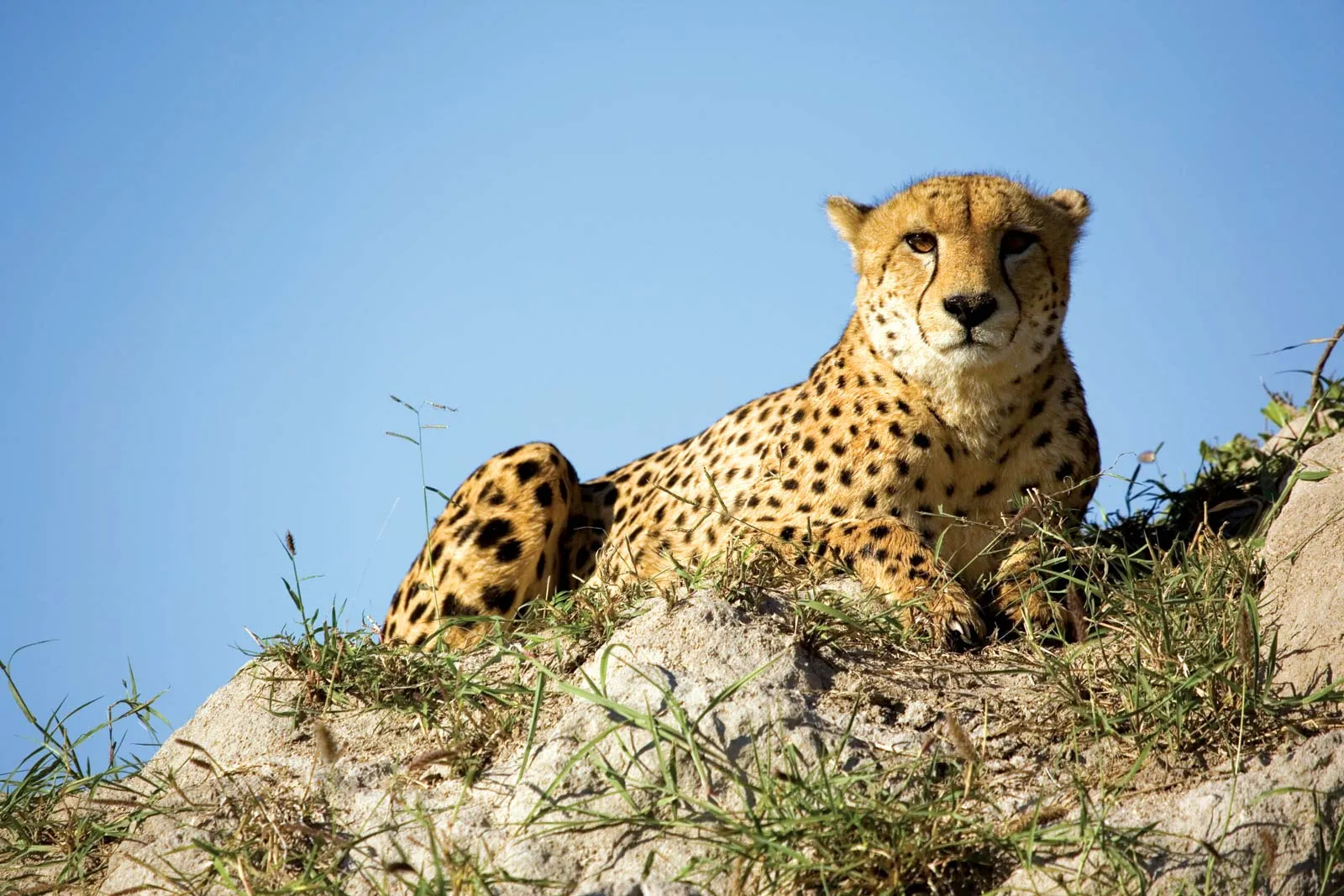In a significant move to bolster its ambitious cheetah reintroduction project, India is all set to receive eight cheetahs from Botswana. The officials from the National Tiger Conservation Authority (NTCA) announced that the animals will arrive in two phases. The first batch of four Cheetahs is expected by May.
This development was shared during a review meeting of the project held in Bhopal. The meeting was attended by Union Minister for Environment, Forests & Climate Change Bhupender Yadav and Madhya Pradesh Chief Minister Mohan Yadav.
Further Translocations on the Horizon
Meanwhile, the NTCA officials indicated ongoing efforts to bring more cheetahs to India from various African nations, This includes nations like South Africa and Kenya, besides Botswana.
“Efforts are underway to bring more cheetahs from South Africa, Botswana, and Kenya to India. Eight cheetahs will be brought to India in two phases. There is a plan to bring four cheetahs from Botswana to India by May. After this, four more cheetahs will be brought. At present, consent is being developed on an agreement between India and Kenya,” the release quoted NTCA officials as saying.
Significant Financial Investment in Cheetah Rehabilitation
The review meeting of the project also revealed the details of the financial aspects of Project Cheetah. The NTCA officials revealed that over ₹112 crore has been invested in the project nationwide till date. However, a substantial 67% of the investment is allocated specifically for cheetah rehabilitation efforts.
Strengthening Conservation Measures
Moving forward, the project aims to relocate cheetahs in a phased manner to the Gandhi Sagar Sanctuary. The Gandhi Sagar Sanctuary Wildlife park is located in Chenpuriya, Madhya Pradesh. This sanctuary’s strategic location adjacent to the Rajasthan border has led to an in-principle agreement.
The agreement between the two states Madhya Pradesh and Rajasthan is in order to establish an inter-state cheetah conservation area, This initiative will be promising a larger and more secure habitat for the reintroduced big cats.
“Under Project Cheetah, cheetahs will now be relocated in a phased manner in Gandhi Sagar Sanctuary. The sanctuary is adjacent to the border of Rajasthan, so an in-principle agreement has been reached between Madhya Pradesh and Rajasthan to establish an inter-state cheetah conservation area,” the release said.
Current Status in Kuno National Park
The officials stated that there are currently 26 cheetahs as of now. This includes 16 individuals roaming freely in the open forest and 10 others housed in the rehabilitation center (enclosures). According to the officials, a robust 24-hour tracking system utilizing satellite collar IDs is in place. This system continuously monitors the movements of the cheetahs and ensures their well-being.
Reports suggest that female cheetahs Jwala, Asha, Gamini, and Veera have successfully given birth to cubs. This has further contributed to the growing India-born cheetah population, which now stands at 14. The presence of cheetahs has also positively impacted tourism in Kuno National Park. The number of visitors to watch the cheetahs have doubled in the past two years.
Furthermore, to enhance conservation efforts, special training is being provided to “cheetah mitras” and trainers presentnt in the parks. The training is being conducted at both Kuno National Park and Gandhi Sagar Sanctuary. The trainers are equipped with the necessary skills for effective monitoring and protection of the wild animals.
Cheetah Safari Plans Await Supreme Court Approval
In addition, the Madhya Pradesh state government has filed a petition with the Supreme Court. The petition filed by the state government seeks permission to commence cheetah safaris in MP’s Kuno National Park. This clearance remains crucial for initiating safari activities within forest areas or eco-sensitive zones. However, the decision on this crucial petition is currently pending.
“The state government has filed a petition in the Supreme Court seeking permission to start cheetah safari in Kuno. This permission is necessary to start safari in forest areas or eco-sensitive zones. The decision on this petition is yet to be made,” the release said.
Background of the Cheetah Reintroduction Project
The Madhya Pradesh government’s ambitious Project Cheetah began with the release of eight Namibian cheetahs (five females and three males). These 8 cheetahs were released in Kuno National Park on September 17, 2022. This marked the first intercontinental translocation of these big cats.
Following this came the translocation of another 12 cheetahs from South Africa to Kuno in February 2023.


